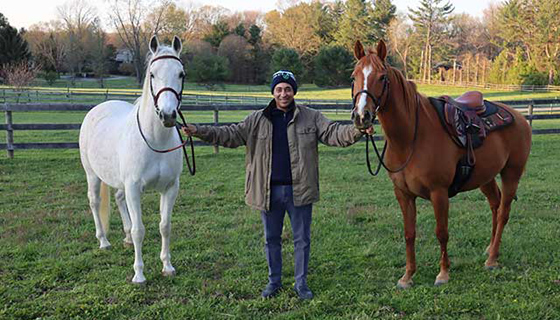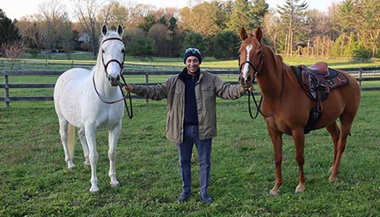Coronavirus and COVID-19: Younger Adults Are at Risk, Too
Reviewed By:
At the start of the COVID-19 pandemic, reports indicated that the disease was mostly affecting older adults, and that young people were more likely to have milder cases of the disease.
But according to the U.S. Centers for Disease Control and Prevention (CDC), over the summer, in the United States, people under age 30 accounted for more than 20% of COVID-19 cases and were seen as more likely to transmit the virus than others. This trend has continued into the fall.
Coronavirus infections requiring hospitalization are not only possible in younger adults, but the rate of these cases is increasing as the SARS-CoV-2 coronavirus continues to spread. Lisa Maragakis, M.D., M.P.H., senior director of infection prevention at Johns Hopkins, sheds light on the new data.
Can young people get coronavirus?
Yes. Though they are less likely to be hospitalized because of COVID-19 or to die from it, people in their 20s, 30s and 40s can catch the virus, and some develop severe and lasting symptoms, particularly if they are living with obesity, diabetes or high blood pressure (hypertension).
Data from one study shows that of more than 3,000 adults ages 18 to 34 who contracted COVID-19 and became sick enough to require hospital care, 21% ended up in intensive care, 10% were placed on a breathing machine and 2.7% died.
Young Black and Hispanic men and women are more at risk than their white counterparts due to longstanding racial health inequities and social determinants of health that leave them more vulnerable.
What are coronavirus risk factors for young adults?
Jobs are one reason why young adults are vulnerable to coronavirus infection. Many people in their 20s and 30s work in health care, food and essential services such as public transportation. Young people often work in areas at high risk for exposure to the coronavirus, such as bars and restaurants, schools, child care centers and retail shops. College students can be affected by campus outbreaks and spread the coronavirus when they return home.
Since young people are less likely to have severe cases of COVID-19, they may have a false sense of confidence regarding their safety. They may feel that mingling with others in large groups, attending parties, not wearing masks and ignoring community pandemic guidelines will not seriously endanger them.
COVID-19 Precautions for Young Adults
While most young people who get COVID-19 recover, some do not. Many may pass the illness to others unknowingly.
It’s important for young adults to realize their role in the COVID-19 pandemic. Even healthy people in their 20s and 30s can catch the coronavirus, spread it to others, and suffer from severe illness resulting in lasting health problems or even death.
In some areas of the U.S., data show that increased cases of COVID-19 among young adults are followed by increases among older adults four to 15 days later, suggesting that younger people are transmitting the coronavirus to them.
Behaviors make an enormous difference. COVID-19 precautions such as mask-wearing, physical distancing, hand hygiene and self-monitoring for coronavirus symptoms are effective in limiting infection and spread of the disease. They are especially important for those with a vulnerable household or community members such as chronically ill, older and immunocompromised people.







